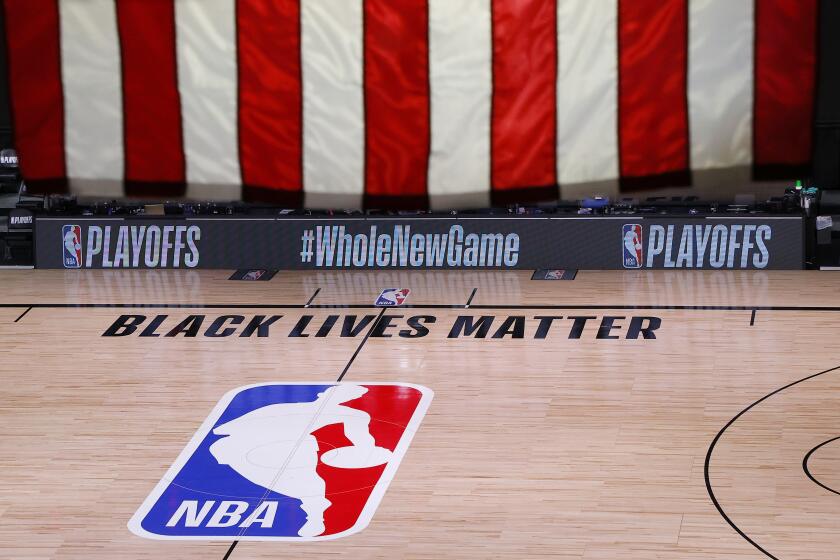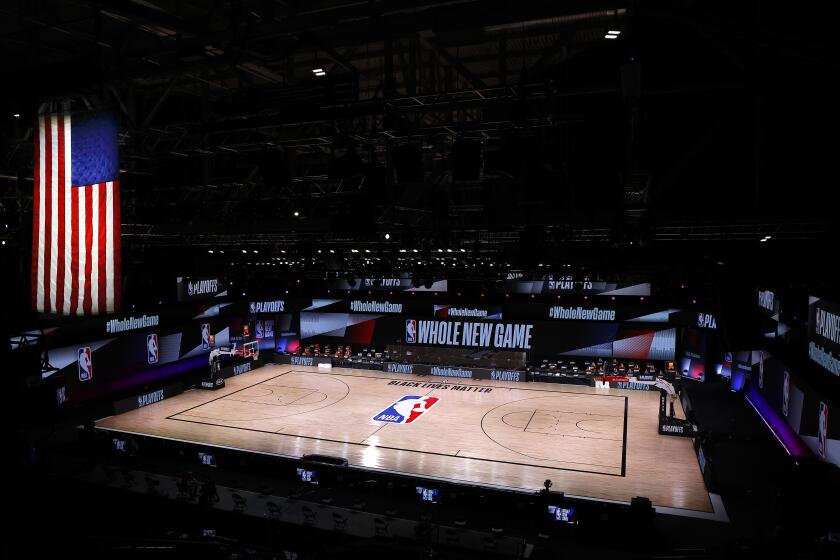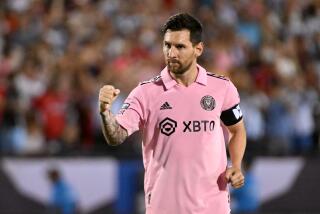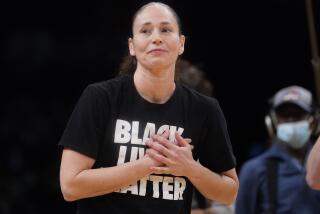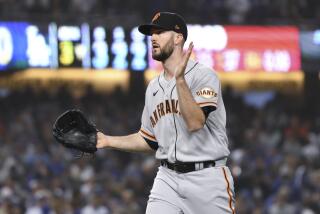NBA players boycott? Why ‘boycott’ is not the correct term
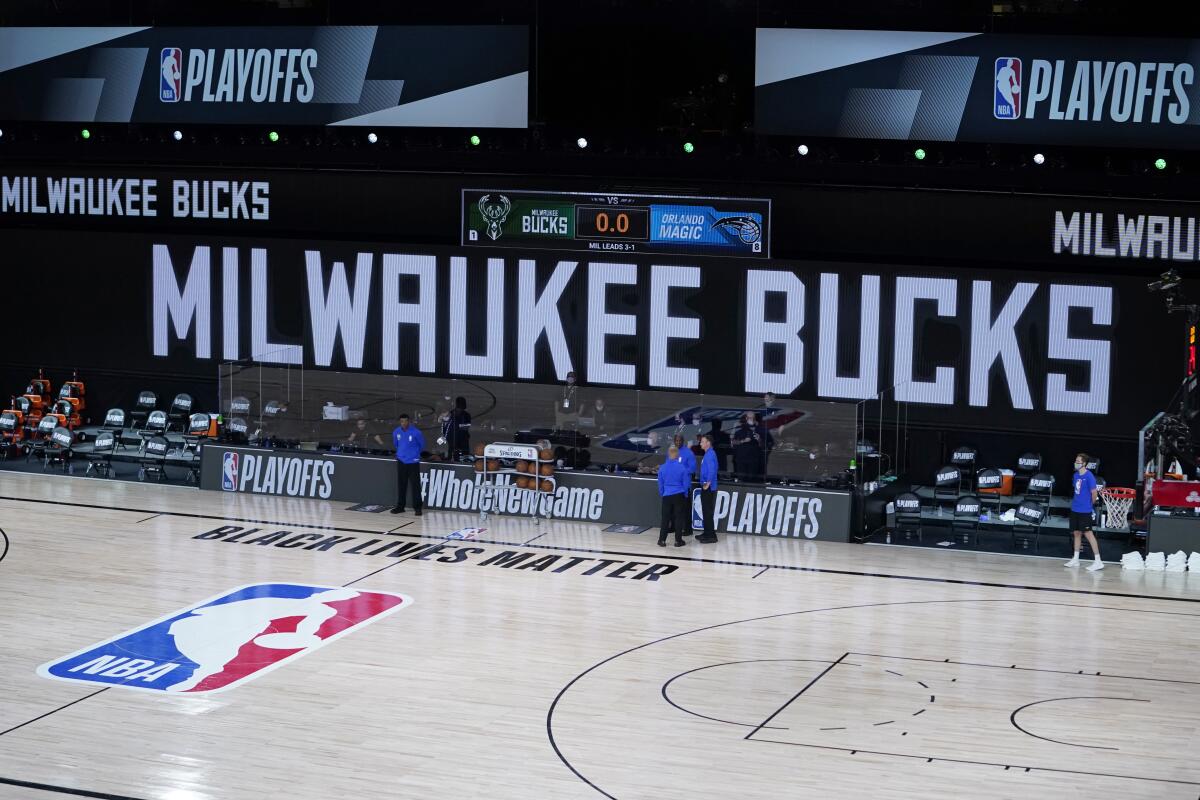
- Share via
As professional sports contests evaporated Wednesday afternoon to protest the police shooting of Jacob Blake in Kenosha, Wis., LeBron James posted a brief message on Instagram.
“BOYCOTTED,” the Lakers star wrote, “NOT *POSTPONED.”
What started with the Milwaukee Bucks refusing to take the court for Game 5 of their NBA playoff series against the Orlando Magic quickly led to the league’s two other scheduled games, including the Lakers facing the Portland Trail Blazers, not taking place.
The actions to draw attention to social injustice and police brutality spread to MLB, MLS and the WNBA, where some or all scheduled games were called off.
But what’s the correct term for what happened? Boycotts? Postponements? Strikes? Or something else?
“From a pure legal standpoint, I would term these wildcat strikes,” said Joseph Longo, an adjunct professor who teaches sports law at Loyola Law School. He’s also an attorney and MLB player agent.
Here’s how the police shooting of Jacob Blake, an unarmed Black man in Wisconsin, stopped the NBA playoff games in Florida.
Despite James and other players referring to the actions as boycotts, the traditional definition of the term revolves around an organized effort to hurt an entity financially in order to drive change or attract attention. That doesn’t fit this situation. The players aren’t trying to damage their employers — or affiliated entities like sponsors or television networks — but instead want to draw attention to the Blake shooting and social injustice.
“I think it’s a euphemism for a work stoppage,” Thomas Lenz, a law lecturer at USC and attorney specializing in labor and employment law, said of players describing the postponements as boycotts. “When employees decide to withhold their services … that is technically strike activity.”
The National Basketball Players Assn. described what happened in a statement as postponements, while a tweet from the NBA framed it as a joint decision between players and the league.
A statement on behalf of Bucks players said they “boycotted” the game against the Magic.
Dee Gordon, an infielder and outfielder for the Seattle Mariners, tweeted that the team “voted unanimously” to not play the San Diego Padres. The Mariners have the most Black players of any MLB team. The league later issued a statement saying it respected “the decisions of a number of players not to play tonight.”
Despite the varied terminology, the actions have the most in common with wildcat strikes.
The catch is that the collective bargaining agreement between the NBA and its players’ union bans players from “any strikes, cessations or stoppages of work, or other similar interference with the operations of the NBA or any of its Teams.”
Athletes, teams, and politicians react on social media to players protesting today’s scheduled games in light of the Jacob Blake shooting.
“The employer would have a right to potentially take action on employees who violate the no strike clause,” Lenz said. “But I can’t imagine the league is going to want to do that, particularly when the message that the players are stating very clearly — even through the league itself — is that Black lives matter and addressing the crisis of racial injustice.”
The impact of the unprecedented day in professional sports likely will extend far beyond the protests, whether they last a day, a week or longer.
“We now have a new issue that needs to be collectively bargained” in future rounds of negotiations between leagues and players “boycotts, protests or whatever you call them,” Longo said. “I suspect both sides will have to spend time on what channels these go through in the future. … We’ve never seen this before.”
More to Read
Go beyond the scoreboard
Get the latest on L.A.'s teams in the daily Sports Report newsletter.
You may occasionally receive promotional content from the Los Angeles Times.
